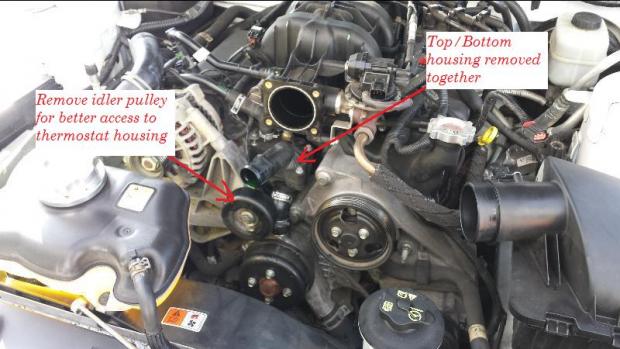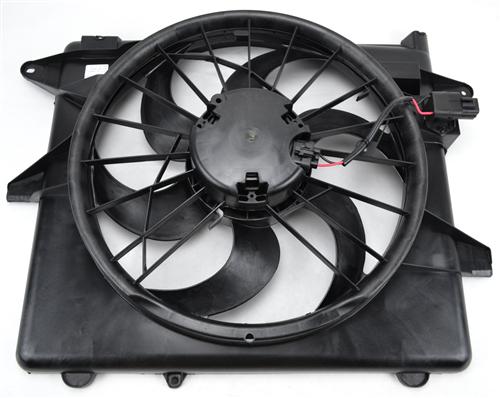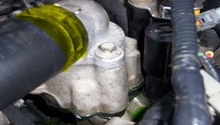Ford Mustang V6 2005-2014: Why is My Car Overheating?
Overheating issues are something that you never want to delay fixing. If left untreated, your engine may fail and lead to very expensive repairs!
This article applies to the Ford Mustang V6 (2005-2014).
The cooling system in you Mustang is not very complex, which makes it easy to diagnose and fix any issues with overheating. Your cooling system has a very tough job to do. Your engine produces massive amounts of heat due to the friction buildup and operation of your engine and the primary way it is cooled is by the flow of coolant. Some of the most common issues related to overheating include defective thermostats, electric fans, radiators, and water pumps. Check visually for leaks as well as obvious issues with cooling system components, and then follow this in order to diagnose your issues.

Materials Needed
- Flashlight (optional)
- Voltmeter
Step 1 – Check your thermostat
A stuck thermostat will cause overheating by not allowing coolant to pass through the engine at operating temperature.
- When the engine is warming up to operating temperature, it will run fine, but at the thermostat temperature, it will rapidly start to overheat.
- Conversely, a thermostat can be stuck open, which will cause your engine to take longer to get up to running temperature and efficiency will suffer.
- Another possibility is a partially stuck thermostat, which will cause intermittent overheating issues.

Pro Tip
Check for leaks around the thermostat just to make sure you are not loosing coolant.
If the thermostat is found to be the problem, then you are done!
Step 2 – Check the radiator fan
A stuck or slow radiator fan will also lead to overheating.
- The radiator is responsible for removing heat from the engine through dissipation of heat from the coolant. The radiator fan pushes this heat away from the radiator.
- A malfunctioning radiator fan is easy to diagnose. At running temperature, check if the fan is running or not.
- To fix a malfunctioning radiator fan, determine if the motor is burnt out or if it's an electrical issue.

If the radiator fan is found to be malfunctioning, then replace it and your problem will be fixed!
Step 3 – Check your radiator and radiator hoses
A malfunctioning radiator will cause your Mustang to overheat by not allowing heat to be dissipated from the warm engine coolant.
- Check for leaks in your radiator by visual inspection and by physically checking the coolant level.
- If you drain your radiator and find sludge or rust in your coolant, then your radiator should be replaced.
- Your radiator can also become dirty. Check for debris wedged into the radiator's fins that hinder heat dissipation.
- Check your radiator hoses for cracks or pinhole leaks.

Figure 3. Radiator location. 
Figure 4. Radiator hose leaks.
Pro Tip
If your car is upgraded, consider an aluminum radiator to increase your heat dissipation capabilities.
Step 4 – Check for water pump issues
Your water pump circulates coolant throughout your engine. With a faulty water pump, temperatures will spike rapidly and the engine can overheat substantially.
- Check for visual leaks around the water pump area.
- Listen to your water pump pulley to see if it squeaks or seems to bind. Usually, the water pump pulley can be replaced separately to avoid replacing the water pump unit.
- If the water pump is stuck frozen, it is worth the peace of mind to replace it.

Related Discussions
- Car Overheated Really Bad Today - MustangForums.com
- Car Overheating on Idle - MustangForums.com






